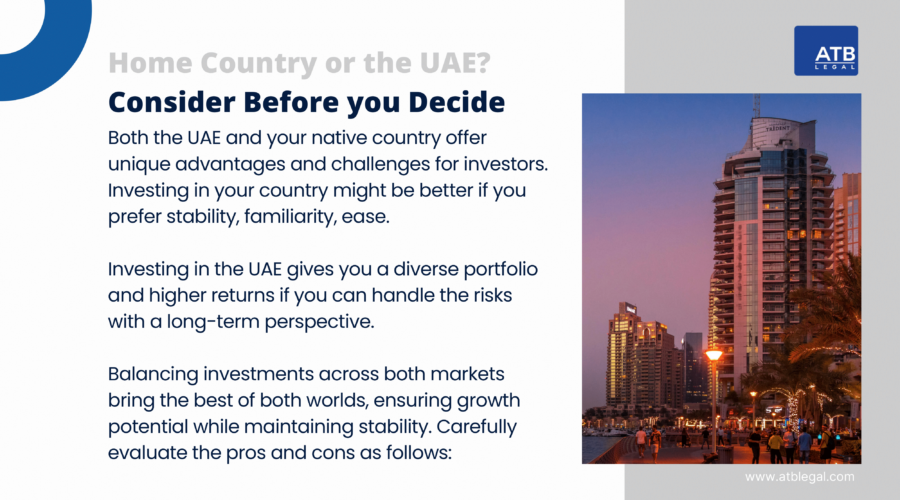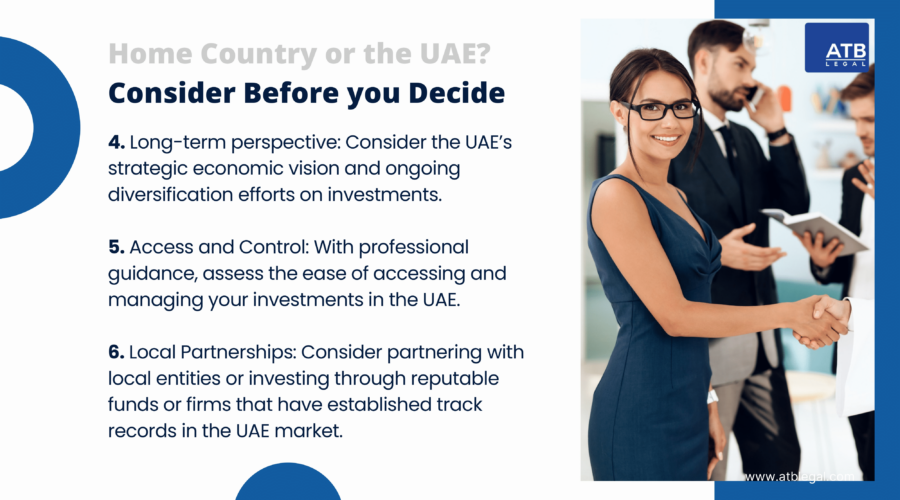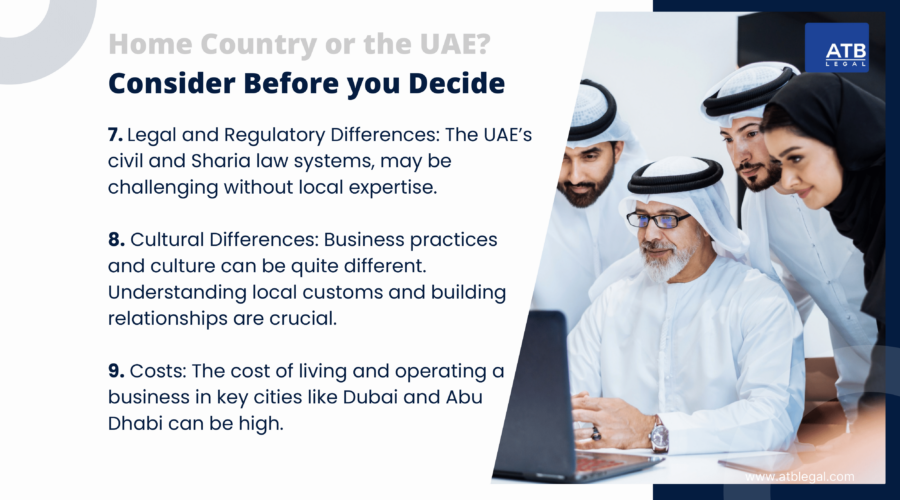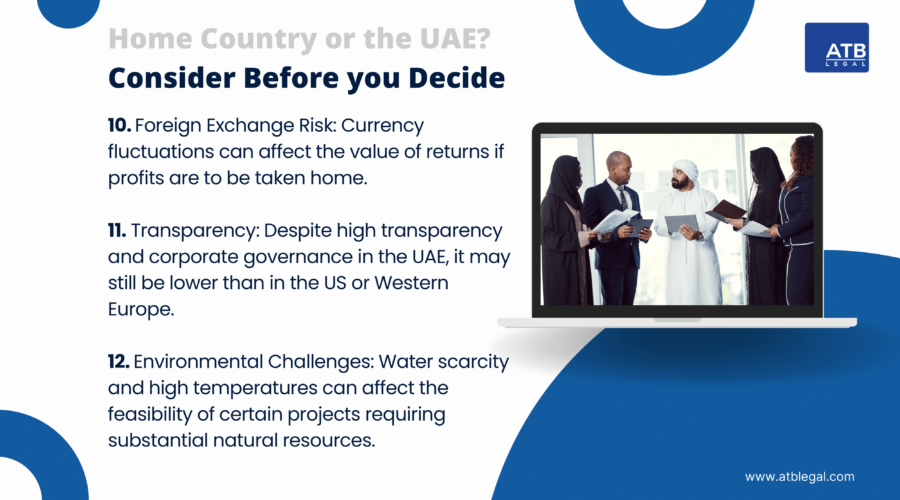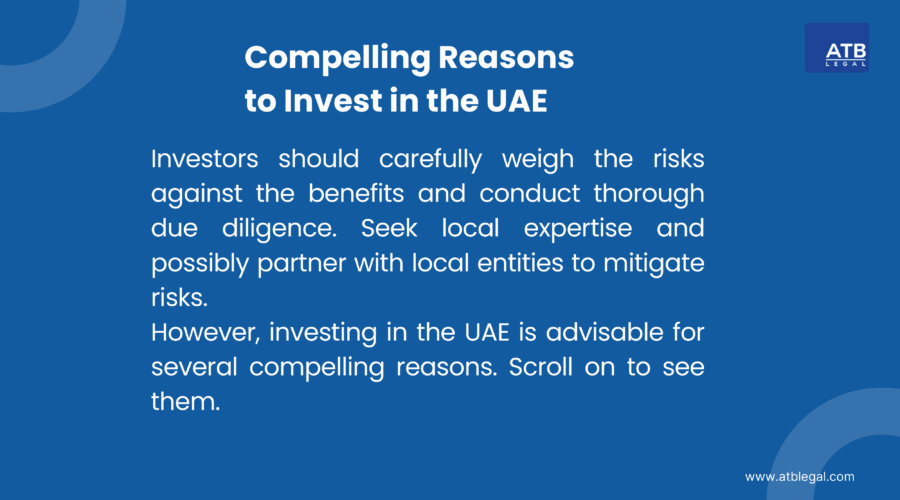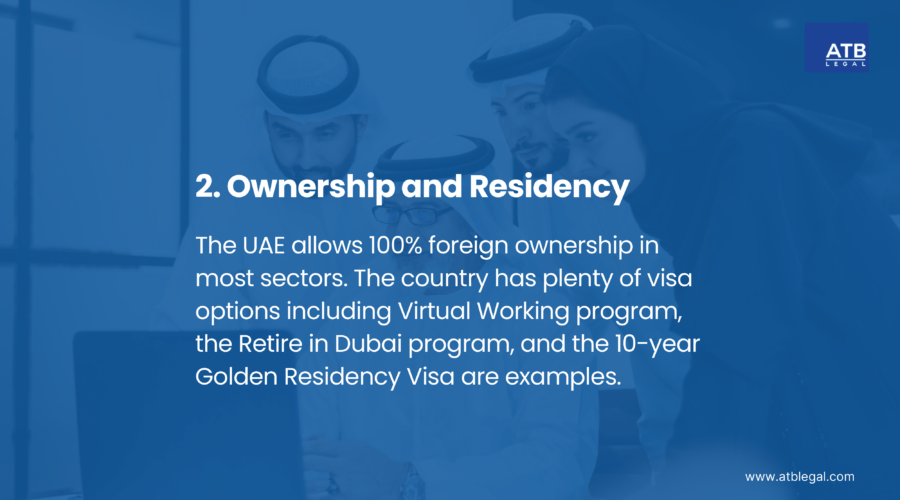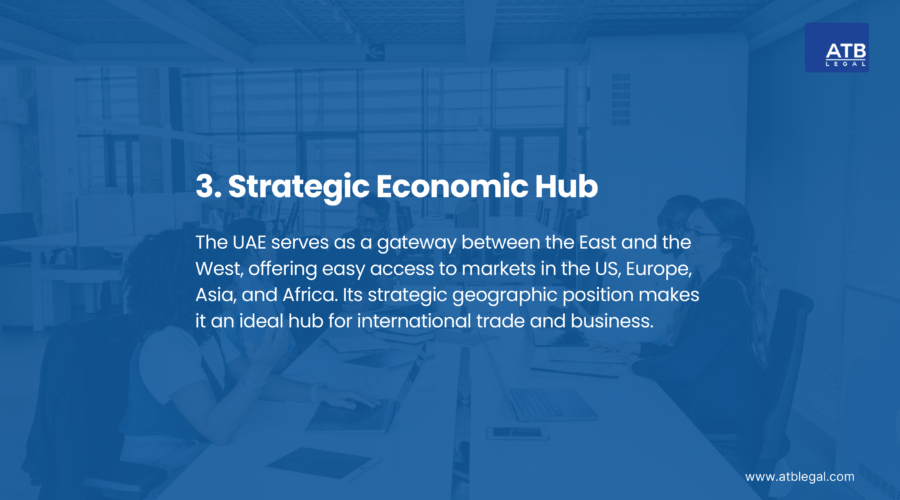The United Arab Emirates (UAE), a land of boundless opportunities, stands as an irresistible hub for entrepreneurs and investors seeking unparalleled growth and prosperity. Yet, when faced with the decision of choosing between Mainland and Freezone for your business setup, it’s easy to find yourself at a perplexing crossroads, unsure of which path to tread. But fear not! In this gripping article, we will serve as your compass, embarking on an exhilarating exploration of Freezone and Mainland. Together, we will uncover their distinctive characteristics, empowering you to make an astute choice that will steer your entrepreneurial aspirations toward resounding triumph. So, buckle up and prepare for an awe-inspiring journey as we unravel the secrets to unlocking your business setup!
Understanding the Basics of UAE Business Incorporation
When you consider setting up your business in the UAE, two primary options loom large: Freezone and Mainland. Each option presents its own set of advantages and conditions, making this choice a pivotal one that can profoundly impact the success of your enterprise. To navigate this decision-making process with finesse, seeking guidance from experts who can ensure a swift, cost-effective, and hassle-free journey toward establishing your business in the UAE is essential.
Related Blogs
Ultimate Beneficial Owner Disclosure
Key Insights For Starting Your Business
Bharat Mart in the UAE
Choosing the Right Legal Structure for Your Business in the UAE
Exploring the Opportunities for UAE Offshore Companies
Advantages of setting up Family Offices in ADGM
Free Zones in the UAE
Establishing A Mainland Company In The UAE: Advantages ,Costs
ADGM Foundations for Family Asset Management
RAK ICC Foundations
Understanding Trust Structures in the UAE: An Overview
Setting Up a Company in JAFZA: A Comprehensive Guide
Understanding Business Activities in the UAE: A Key to Successful Business Setup
Why Would You Need an Emirati Partner? Understanding the Need for Local Partnerships in the UAE
Essential Documents for Company Incorporation in the UAE
Comprehensive Guide to Manufacturing and Licensing in the UAE
Essential Guide to Renting an Office in Dubai
Dubai Warehouse Rentals: Boost Your Business Growth
Essential Virtual and Ejari Offices for Starting a Business in the UAE
A Guide to Opening a Business Bank Account in the UAE
A Guide to Establishing a Non-Profit NGO in the UAE
Setting Up a Business in the UAE: The First Step – Reserving a Trade Name
Dual Licensing in the UAE: A Legal Perspective
ADGM Announces Revised Commercial License Fee Structure Effective January 2025
The arena of investment for entrepreneurs or investors is not just limited to incorporating a new business/company in the UAE but also to merging or acquiring an existing business in the UAE. However, to consider this as an option, they must ensure that they are competent and compliant with the UAE Competition Law.
- Free Zones: These are areas within the UAE where companies can be wholly foreign-owned, and owners can benefit from incentives like full repatriation of profits and no import or export duties.
- Mainland: Companies in mainland areas can engage directly with the broader UAE market but generally require a UAE national to hold at least 51% of the shares unless set up in a professional or artisan sector where 100% foreign ownership is permitted under certain conditions.
- Offshore: Offshore companies are primarily set up for managing assets and conducting activities outside the UAE. These entities benefit from confidentiality and tax exemptions but cannot trade within the UAE.
Now let us delve into the captivating realms of Freezone and Mainland businesses, equipping you with the knowledge necessary to make a well-informed choice.
Mainland Companies: Where Boundaries Are Meant to Be Broken
Mainland companies in the UAE offer a world of unbridled flexibility and infinite possibilities. Governed by mainland authorities, these companies enjoy greater freedom to trade and generate substantial returns, thanks to fewer restrictions. One significant advantage lies in the ease of relocating within the same emirate where your trade license is registered. While in the past, local service agents were mandatory for company registration, recent changes in the UAE regulations have removed this requirement, empowering entrepreneurs to chart their own courses. With Mainland companies, you possess the liberty to explore the vast potential of the UAE’s business landscape, unrestricted and ready to conquer new horizons.
Freezone Companies: Flourishing in Exclusive Ecosystems
Freezone companies represent entities registered within the autonomous jurisdiction areas known as Freezones, strategically designed to cater to specific industries. These high-tech environments provide entrepreneurs with fertile ground for their businesses to flourish. With over 46 Freezone areas across the UAE, each boasting its own unique advantages, these exclusive ecosystems offer a potent blend of benefits. Freezone companies grant 100% ownership to foreign investors or owners, ensuring complete control over business operations. Additionally, they enjoy enticing tax exemptions and favourable import-export regulations. However, it is important to note that Freezone companies face restrictions on trading within the UAE mainland market, restricting their total available market (TAM) to other Freezones and other countries.
Mainland Company or Freezone Company: Paving Your Path to Success
The decision whether to set up your business in the Mainland or in a Freezone ultimately hinges on your business goals, operational structures and legal requirements. As an entrepreneur or investor embarking on the business setup journey in the UAE, it is crucial to weigh the advantages of each option carefully. Let us delve deeper into the key differences:
Ownership: Freezones entice with the advantage of 100% ownership without the need for a local sponsor, while Mainland companies typically require an Emirati partner holding at least 51% of the shares. Recent changes, however, have opened avenues for 100% foreign ownership in selected mainland businesses across industries other than oil and gas, telecoms, and transport.
Location: Freezone companies are confined to their designated Freezone areas, limiting their flexibility, while Mainland companies enjoy the freedom to establish themselves anywhere across the UAE, providing access to diverse markets.
Workspace: Mainland companies must secure a physical office space of at least 200 square feet, whereas Freezone companies can choose between physical offices, flexi-desk options, or even operate remotely, catering to their specific needs.
Trading Restrictions: Freezone companies face limitations when conducting business within the UAE mainland market, necessitating collaboration with distributors or the establishment of mainland companies to trade within the country. In contrast, Mainland companies revel in the freedom to trade within the UAE without any restrictions, empowering them to seize opportunities unhindered.
Licensing: Mainland companies require a license from the Department of Economic Development (DED), whereas Freezone companies obtain their licenses directly from the respective Freezone authorities, streamlining the process.
Mainland Company or Freezone Company – An Array of Advantages
As a business owner establishing your company in the UAE, it is crucial to be aware of the distinctive advantages each option offers to make the right decision. Let’s explore the advantages of both Mainland and Freezone companies:
Advantages of Mainland Companies:
- No restrictions on conducting business anywhere in the UAE, providing unparalleled access to local and global markets.
- 100% repatriation of profits and capital on most business activities, ensuring maximum returns on your investments.
- No restrictions on the number of visas, enabling seamless workforce expansion and talent acquisition although the number of visas is limited by workspace area.
- Unrestricted access to diverse business activities compared to Freezone companies, opening doors to a broader range of ventures.
- Ease of obtaining a corporate bank account, facilitating smooth financial operations.
Advantages of UAE Free Zone Companies
The UAE provides an accessible gateway to unlock abundant business opportunities and register your company in free zones. By taking advantage of the business-friendly environment, you can establish a global presence and access diverse markets that will drive your success. Here are some of the key benefits that await you:
- 100% foreign ownership: Unlike in many other countries, the UAE free zones allow you to have full ownership of your business.
- Easy and swift company formation, expediting your journey toward entrepreneurial success.
- Advanced infrastructure and work facilities, creating an environment that nurtures innovation and growth.
- Easier recruitment policies, allowing you to attract and retain top talent seamlessly.
- Exemption from import and export tax: Free zone companies are exempt from import and export duties, giving you a competitive edge.
- Freedom from income and corporate taxes: Enjoy the freedom from income tax. And corporate taxes are limited. This allows you to reinvest your profits for growth.
- 100% repatriation of capital and profits: You have complete control over your finances, with the ability to repatriate your capital and profits without any restrictions.
Making the Right Move: Your Business, Your Future
Armed with a wealth of knowledge about Freezone and Mainland, it is now time to choose the path that aligns with your unique business goals. Consider the size, nature, and location requirements of your venture, and seek guidance from industry experts to ensure a seamless company formation process. Remember, the decision you make today will shape your future success in the UAE, a city brimming with boundless growth opportunities and the promise of realizing your entrepreneurial dreams. Embrace the excitement of the UAE’s business landscape, take the plunge, seize the opportunity, and carve your path to resounding triumph in the thriving business paradise of the UAE.
Setting Up a Business in the UAE
The UAE government has implemented a wide range of initiatives to simplify the process of business setup in the mainland. This includes streamlined licensing procedures, reduced government fees, and the ability to repatriate 100% of profits and capital. These incentives are designed to encourage foreign investment and stimulate economic growth.The UAE allows for various legal structures to set up your business.
Moreover, establishing a business in the UAE mainland allows for the option of applying for multiple visas, depending on the size of the office space and the nature of the business, which is a crucial advantage for companies looking to expand their workforce. With its strategic location, robust infrastructure, and business-friendly environment, the UAE mainland continues to be a top choice for businesses aiming to establish a strong foothold in the region and beyond.
What is KYC in business setup in the UAE?
In the context of setting up a business in the UAE, the KYC (Know Your Customer) process is a critical regulatory requirement during business setup in the UAE. The KYC process is aimed at verifying the identity of clients and assessing the potential risks associated with illegal intentions such as money laundering and financial fraud. This process involves collecting and analyzing detailed information about potential clients, including their identity, nature of their business activities, and financial transactions.
The UAE authorities mandate this procedure to ensure transparency, integrity, and security in business operations, thereby upholding the country’s reputation as a secure and reliable business hub. Compliance with KYC norms is essential, and it is better to get help from any business setup consultants in the UAE, as it helps in building trust with regulatory bodies, financial institutions, and potential business partners.
How to setup a business in the UAE
Decide on the Legal Form
The choice of your business’s legal structure will affect everything from your operations to your taxes. Common forms of companies in the UAE include Limited Liability Companies (LLC), Sole Establishments, Civil Companies, and various forms of Partnerships and Free Zone Establishments. Each structure has different implications for liability, taxation, and regulatory oversight.
Register Your Business Name and Activity
Before you can operate in the UAE, you need to register your business name and the activities it will undertake. It’s important to ensure that the name is unique and indicative of the business activity. Moreover, all proposed business activities need to align with those permitted in the chosen jurisdiction.
Gather the Necessary Documents and Approvals. Initial approval certificate and name reservation certificate is mandatory for UAE mainland.
Certain types of businesses may also require additional approvals from ministries and other authorities, such as the Ministry of Health for medical practice, or the Ministry of Education for an educational institution.
Finalize the Incorporation Process
After submitting all necessary documents and receiving preliminary approvals, you will need to pay the required fees. Subsequently, you will receive your business license, and you can start your business operations in the UAE mainland.
How to set up a consulting business in the UAE?
To set up a consulting business in the UAE, select a suitable location (mainland or free zone), secure a professional license from the Department of Economic Development or the respective free zone authority, and ensure compliance with all legal, regulatory, and visa requirements.
How to set up a mobile app business in the UAE?
To set up a mobile app business in the UAE, obtain a trade license for software development from the Department of Economic Development or a relevant free zone authority, and ensure compliance with the UAE’s legal and regulatory requirements for digital businesses.
How to set up a service provider business in the UAE?
To set up a service provider business in the UAE, obtain a professional services license from the Department of Economic Development or the corresponding free zone authority, and adhere to all local legal, regulatory, and visa requirements for your specific service sector.
How to set up a Foundation in the UAE?
Foundation is a system to unify family-owned assets under a single-parent holding entity. The Foundation system is more prevalent in various Freezones in the UAE. To set up a Foundation in the UAE, and to know more about the Foundation regime, check the respective sections:Setting up a foundation in ADGM, Setting up a foundation in RAK ICC.
How to set up a Trust in the UAE
Registering trusts in the UAE has become an increasingly attractive option for both domestic and international clients, thanks to a legal framework that has evolved to incorporate the common law concept of trusts. This shift, highlighted by the enactment of the Dubai International Financial Centre (DIFC) Trust Law, reflects the UAE’s commitment to meeting the sophisticated financial planning needs of a growing international business community. To explore the establishment, regulation, and benefits of trusts within the UAE, providing a clear overview for those considering the advantages of this legal structure, please read Understanding Trust Structures in the UAE: An Overview
A Detailed Guide to UAE Free Zone Business Setup
The UAE stands out as one of the most attractive free zone destinations in the world, and for good reason. With its unparalleled political and social stability, the country serves as a safe haven for businesses. UAE free zones have paved the way for greater flexibility and variety in today’s workforce. With a surge in top-tier professionals transitioning to agile work arrangements, the UAE has emerged as the perfect destination for these forward-thinking individuals. These free zones offer a wide range of incentives and flexibility, enabling you to take your company to the next level.
With a legacy spanning over 50 years, the UAE’s free zones have attracted many strategic investors worldwide, making them a testament to success. Moreover, the country’s diverse and vibrant communities include more than 200 nationalities, a testimony to its inclusivity contributing to its integral role as a global player. These free zones provide world-class business and technology infrastructure, creating an ideal setting for international businesses to thrive.
Entrepreneurs are drawn to free zones for many reasons. Firstly, the operational costs are significantly lower compared to traditional business locations, resulting in better investment returns. Whether you’re an aspiring entrepreneur or an established business, free zones offer you the opportunity to connect globally and receive customized support, establishing your business easier than ever.
Numerous international companies have successfully established their businesses in the UAE free zones. If you aspire to be among them, let’s explore the detailed procedures to navigate the business setup process:
- Choose the Business Activity: Begin by selecting the business activity that aligns with your goals and aspirations.
- Choosing a Trade Name: Ensure your company name adheres to the rules and regulations, avoiding violations, repetition, and offensive terms and must required trade license.
- Select a Business Entity: Choose the appropriate legal structure for your free zone company, such as a Free Zone Company (FZC), Free Zone Establishment (FZE), or Branch Office.
- Find a Strategic Location: Research market stability and determine the ideal location based on your business activity and target market.
- Obtain a License: Identify the specific type of business license required for your operations, ranging from General Trading and Service Licenses to Industrial and Manufacturing Licenses. Conduct thorough market research to select the license that suits your business best and submit the necessary documents to the free zone authorities.
- Open a Bank Account: Complete the setup process by opening a free zone bank account and providing the required documentation to the respective free zone authority.
Documents Required for Setting up a Free Zone License in the UAE
To obtain the best business license for your specific needs, you must fulfill certain requirements. These may include:
- Duly filled application license form
- Business card of the contact person
- Business plan copy
- Passport copies of partners and managers
- Notarized and attested Memorandum of Association (MOA) and Articles of Association (AOA)
- Original bank reference letter
- Existing company profile
As you embark on your journey to set up a free zone business in the UAE, keep in mind that the requirements and procedures may vary. It’s crucial to consult with relevant authorities and seek professional guidance from business setup services in the UAE to ensure a smooth and successful setup.
In conclusion, the UAE free zones provide a gateway to unparalleled business opportunities. With their attractive incentives, tax benefits, and global connectivity, they offer an ideal environment for entrepreneurs and businesses looking to establish a strong presence and tap into the dynamic Middle Eastern markets. By choosing a free zone, you unlock a world of possibilities and position yourself for growth and success in the ever-evolving business landscape.


